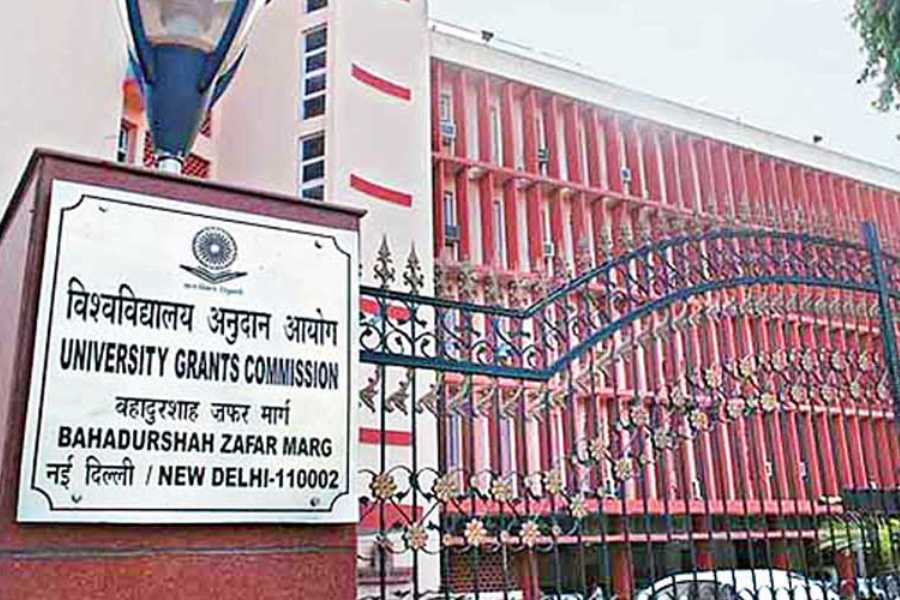Leading Indian scientists have cautioned that government inaction on multiple appeals to reform an annual ranking exercise for higher education institutions introduced in 2016 threatens the quality and integrity of research in the country.
Scientists who wrote to the government four months ago, warning that the pursuit of high ranks in the National Institutional Ranking Framework (NIRF) has fostered “corruption and unethical practices”, said on Sunday they have yet to see any response.
Their concerns are centred on the NIRF methodology, which includes certain quantitative metrics such as the number of research papers and citations those papers receive. Citations are intended to measure academic influence and credit prior research.
The current methodology grants scores even to students, faculty and institutions engaging in manipulative practices, such as publishing “casual” papers that don’t contribute meaningfully to knowledge, 11 leading scientists wrote in a letter to multiple government departments on June 8.
Examples include surveys on eating habits or awareness among students about food. While such papers do little to advance knowledge or train students in research methods, they receive as much credit as serious research, the scientists said.
They also expressed concern that some institutions appear to have instructed students or faculty to cite the work of their own colleagues — whether the citation is relevant or not — adding to the institutions’ citation counts.
A paper on fruit and vegetable consumption published by students and faculty from one university, for instance, had cited a study on diesel engines by others in the same university.
“Such practices have made scientific research a number game… detrimental to the overall ecosystem and reputation of Indian science,” the signatories wrote in their letter sent to the University Grants Commission, the principal scientific adviser to the central government, and the secretary in the higher education department.
The signatories included Partha Majumder, past president of the Indian Academy of Sciences, H.A. Ranganath, former vice-chancellor of Bangalore University, and L.S. Shashidhara, director of the National Centre for Biological Sciences, Bangalore, among others. The letter follows similar concerns some scientists have articulated on other
platforms.
“Aspiration for high NIRF rankings has bred abject misuse and an unimaginable system of corruption and unethical practices,” the scientists wrote, cautioning that the manipulative and gaming practices overlooked by the NIRF will undermine academic integrity and quality.
They have sought revisions in the methodology to provide greater weight to qualitative aspects of research output than to existing quantitative measures.
One option would be to rank all institutions through the existing quantitative measures, then evaluate them on qualitative measures through an additional screening process.
“Despite having drawn the attention of the relevant government authorities, no action against such practices has been rapidly implemented,” said Majumder, a population geneticist and the founder director of the National Institute of Biomedical Genomics, Kalyani.
Queries sent by this newspaper to the University Grants Commission and the department of higher education seeking their perspectives on these concerns have evoked no response.
The National Board of Accreditation, the agency that runs the NIRF, announced earlier this year that the NIRF exercise would introduce negative scores for retracted papers or for citations of tainted papers.
But many believe these steps aren’t sufficient to curb the unethical practices.
“Negative marks for retracted papers is a welcome move, but not enough to address the large numbers of casual papers being produced only to increase scores and that do not get retracted,” said a physicist in a government institution who requested anonymity.
In their letter, the scientists said the ranking system had turned into a business model with no relevance to academic quality or integrity, driven by manipulative practices and papers published in so-called “predatory” or “paper-mill” journals that publish anything for a fee.
Under this model, some institutions push students and faculty to publish in bulk, flooding predatory journals with low-quality papers that inflate scores and attract more students — a cycle scientists say must be broken.
The scientists said the practice of publishing papers in predatory or paper-mill journals is “so rampant” that India should formally treat publication in such journals as an unethical practice, leading to negative consequences on the career of researchers or profile of institutions.











